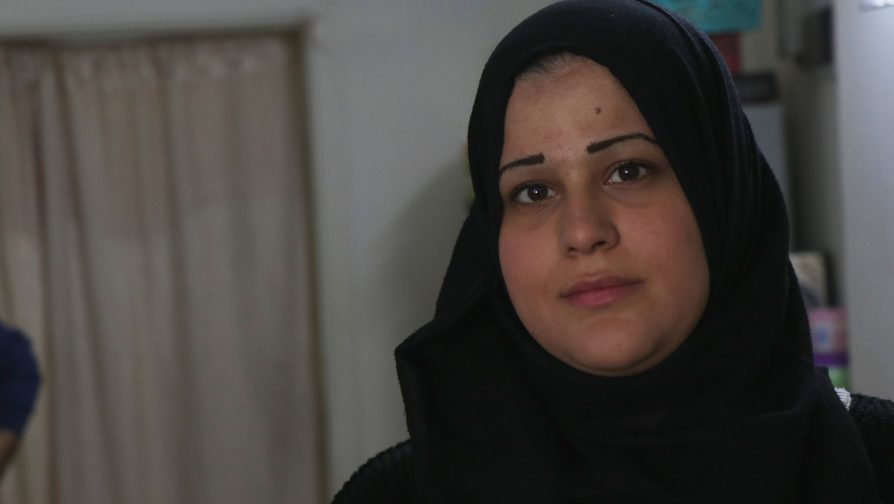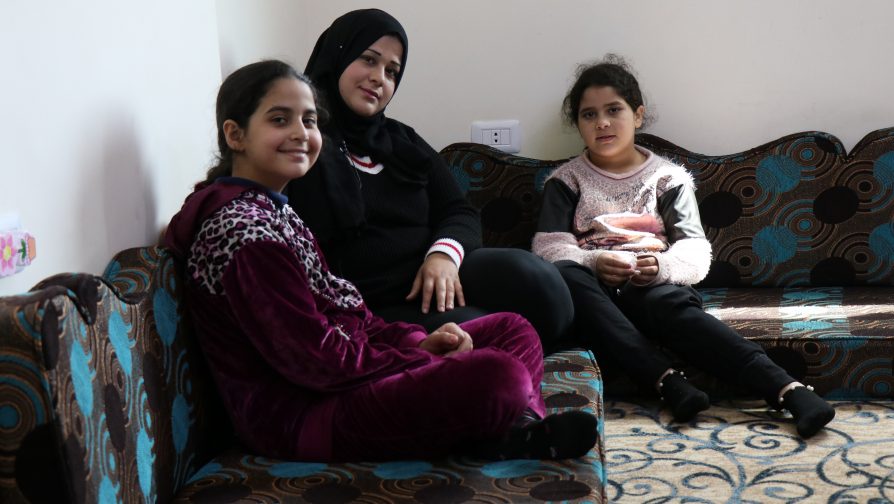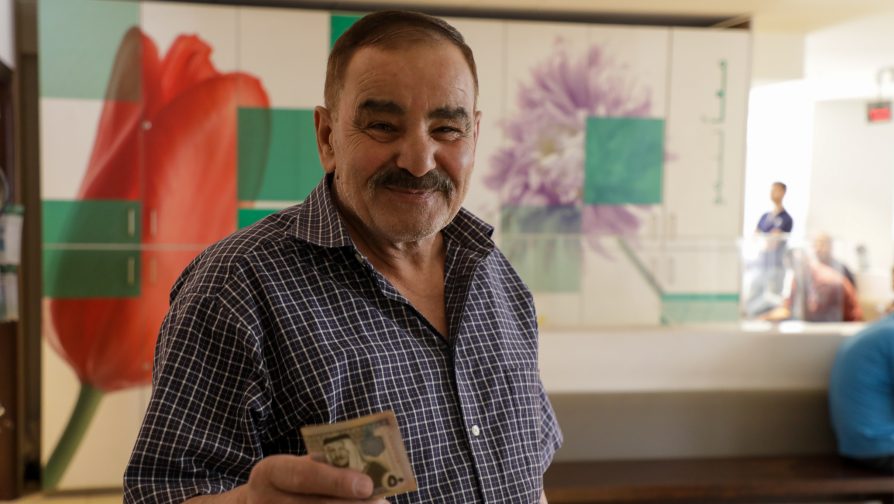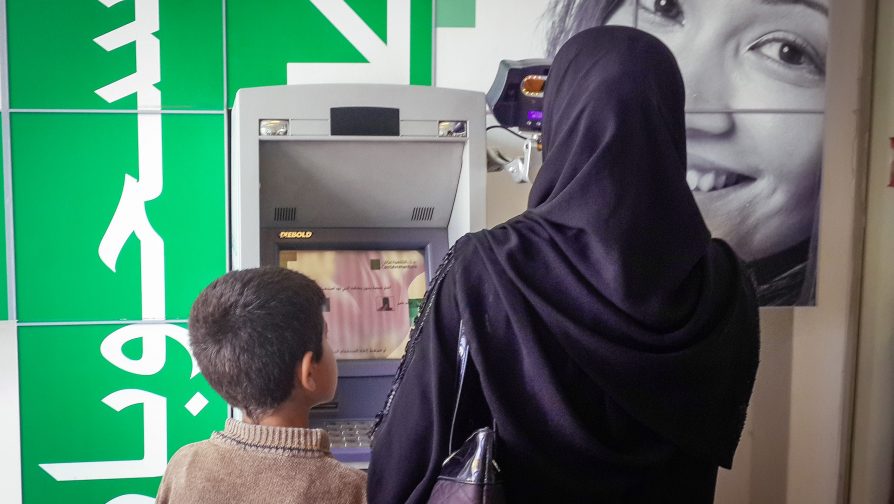UNHCR Jordan welcomes new UK funding for refugees across the Kingdom. These are the stories of the people it will help.
Firas
With five children aged between 12 and 4 years old, Firas, 46, explains that life in Jordan is expensive. After leaving their home in Homs in 2012, for the last 7 years Firas and his family have called Jordan home.

“We’ve been fortunate to make good friends here in Jordan, from all nationalities, Iraqis, Syrians, Palestinans, Egyptians. There is always someone around to support but that doesn’t mean life is easy.
“In Syria I worked as a car mechanic, for the first six months when we arrived in Jordan I tried to continue this work but then I got injured. I have a neck injury which means that I can’t do that any more. My wife also has a degree in psychology from university in Syria, but so many professions are closed to Syrians in Jordan that it has also been difficult for her to find a job which suits her skills.
“Thankfully for the last five years we have been receiving the monthly cash assistance. We get 155 dinar every month which we use for our rent and bills. If we didn’t have this money, I wouldn’t know what to do. We would be forced to sleep on the streets.
“I just want to be able to provide for my children. Growing up as a refugee is difficult. I want them to get a good education, to have a future. Some of our friends have been resettled to the US and Canada so we live in hope that this might also happen for us.”
Hanna

Hanna, 27, is a single mother living with her two daughters in Zarqa, Jordan. Her husband was killed by shrapnel when conflict broke out and they quickly had to flee to safety.
“Before the war, our life was very beautiful. We were living in a very nice home, surrounded by our relatives. We never imagined that beauty would fade away so quickly and that the situation would turn upside down.
“I was forced to leave Syria because of the air strikes. The area I was living in was all ruins. There was no electricity or food and the risk on my daughters was very high. It was so difficult to survive, so I had to leave and come to Jordan.

Before the conflict, her husband provided for their family. But after his death, Hanna was forced to seek other options.
“When I first arrived in Jordan, I was very happy to make it to safety but at the same time I was afraid of not being able to adapt to the situation. I had the will but I was scared of the new environment. I feared this might negatively affect my daughters. Thankfully, little by little things got better and we got used to the situation.
“When I first came and sought asylum, shortly after I registered with UNHCR and I started to recieve monthly cash assistance which is 125 JD [roughly $175]. I use it to pay my rent. Without this cash assistance, I would have been in very big trouble.
“Now I use this money according to my families need. I have always been really concerned about the rent. The remaining expenses can be met in other ways, but most important to me was how to pay the rent every month.
“In Ramadan this year, I took a small amount from the monthly cash assistance and I bought some sweets for my daughters. I wanted to make them happy. With the remaining cash assistance, I paid the rent.”
Farouk

Farouk, 71, lives with his wife in Wadi Seer, Amman. After fleeing the conflict in Syria he has been receiving UNHCR monthly cash assistance for the last 4 years.
“Although I am originally Syrian, I had lived in Jordan for over 45 years working in construction. In 2008 though I took early retirement because I got a back injury. I returned to Syria to be with my family to do the surgery I needed. I used all my savings to buy three apartments in Homs, they were my retirement investment. We rented them out and used the money to live off. But then the conflict came. My wife and I were forced to return to Jordan in 2012. Not out of choice but because it became too dangerous back home.
“Now those three apartments are no more. Destroyed, alongside our hopes and dreams.
“Although we have friends here in Jordan who have gone out of their way to help us, the change has been hard to deal with. After eight years since we returned all our money has run out. I can’t work and had heart surgery earlier in the year. My medication costs 72 dinar a month. We get monthly cash assistance of 120 dinar. So the remaining 50 dinar is all my wife and I have to live off. No one can live with just 50 dinar. It’s not enough.
“We’re lucky because one of our relatives pays the rent but still just trying to cover the water and electricity bills can be expensive. But what can we do. This is the situation we are in.”

UNHCR monthly cash assistance in Jordan currently provides support for almost 30,000 vulnerable refugee families but every month over $5 million is needed to continue reaching the most vulnerable families. New UK assistance is especially welcome as funding for refugees has been declining as the conflict drags on.
By giving families the freedom to buy what they need, cash assistance can help refugee families feel more secure in the present and begin to focus on the future. Most families in Jordan spend their money on rent, utilities, food and health care but it also helps refugee households afford little things that help families feel whole again. These small things can lead to shared moments that make life seem normal again. Amid the uncertainty of years in limbo.
To find out more, read our 2018 cash assistance Post-Distribution Monitoring report
Share on Facebook Share on Twitter